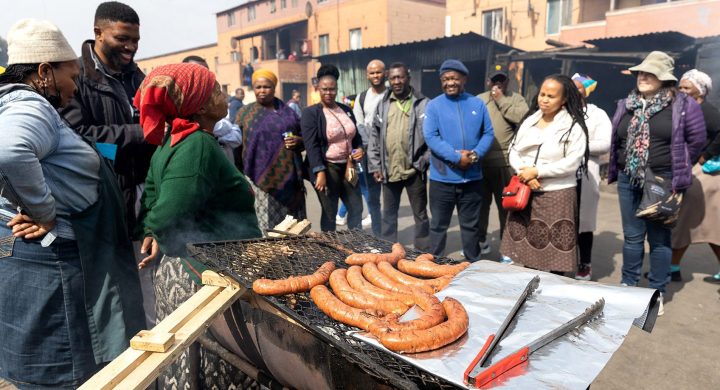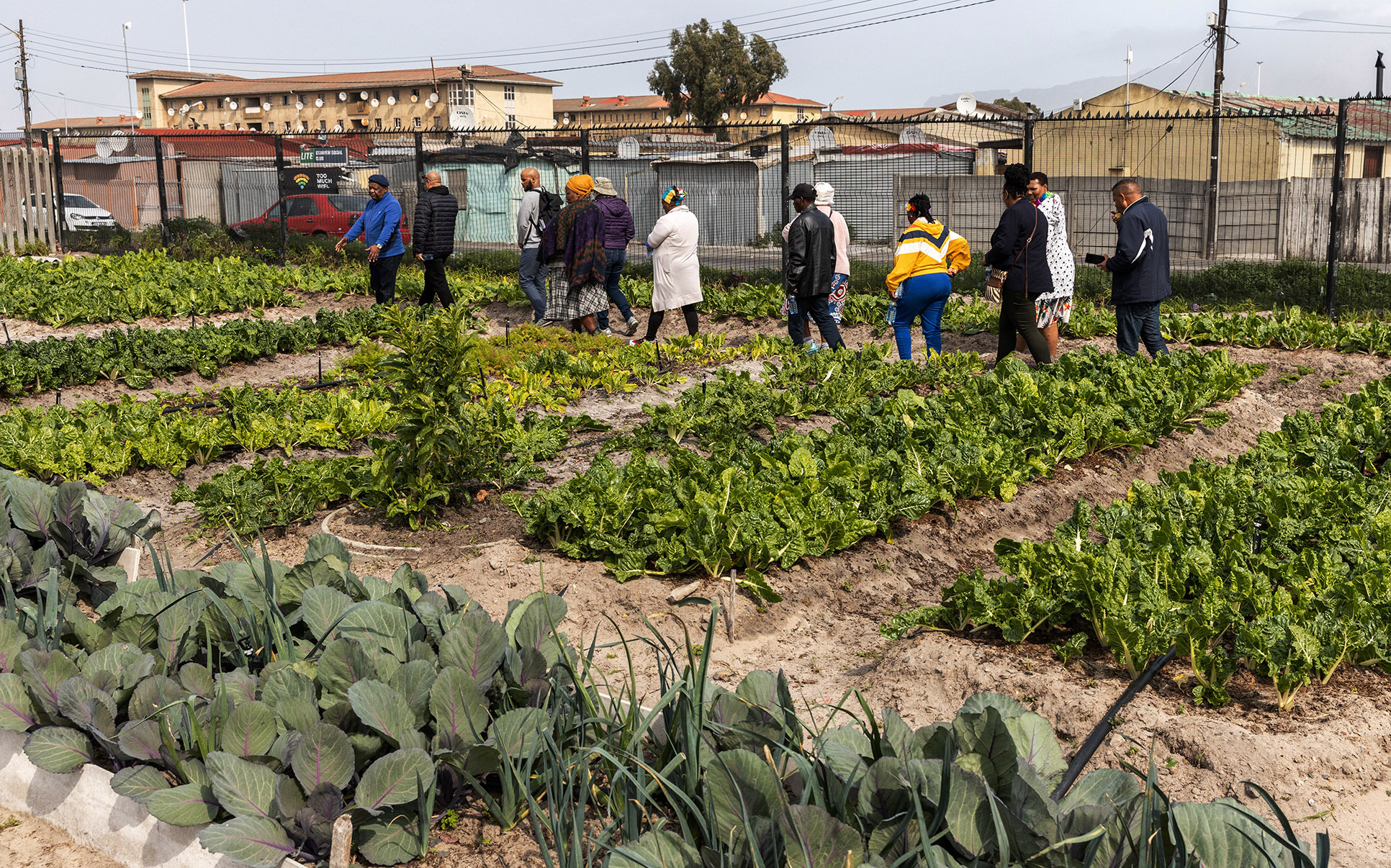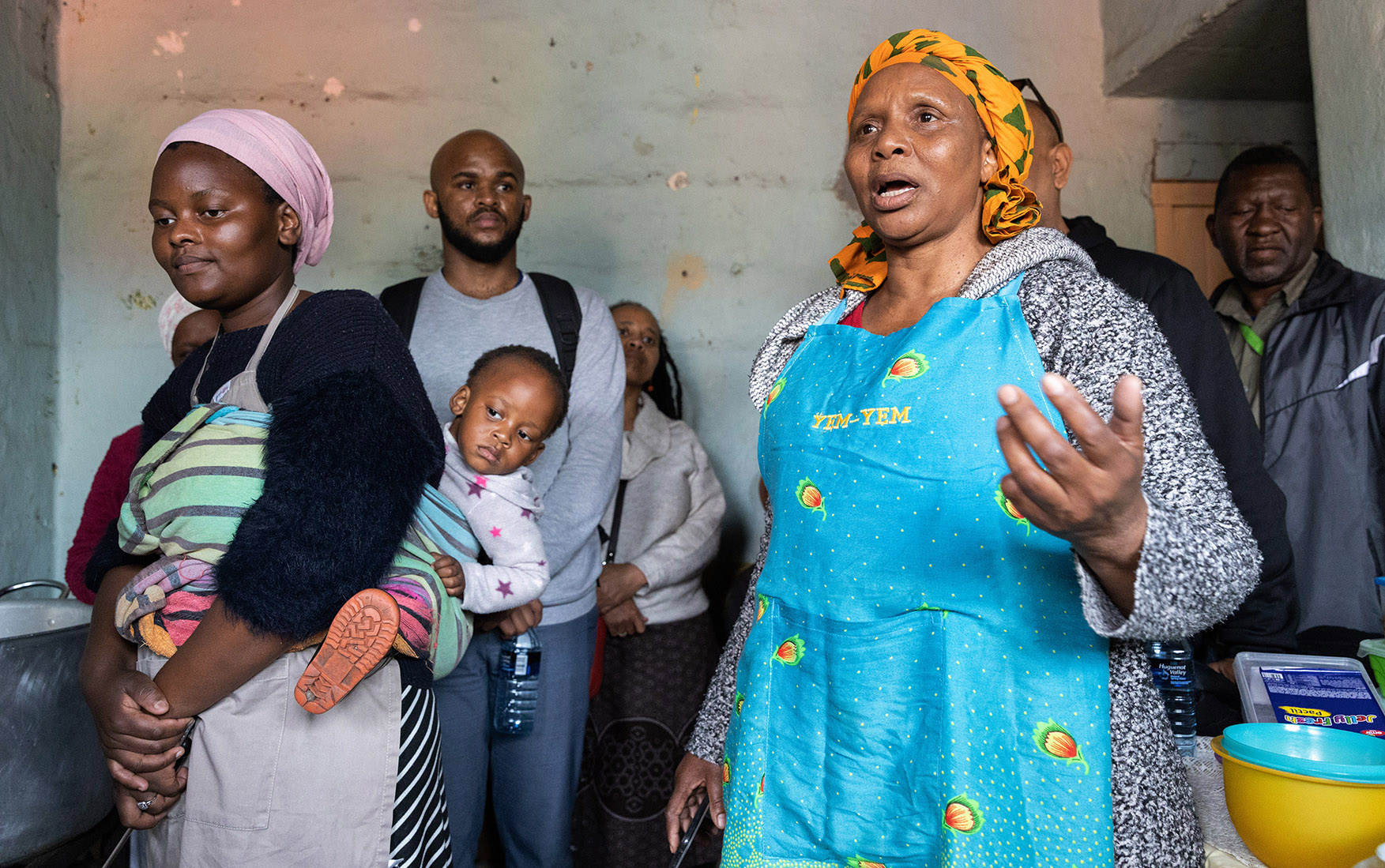
FOOD JUSTICE OP-ED
South Africa has enough food yet its people go hungry – Langa Learning Journey tackles our tragic paradox

The fact that food price inflation in South Africa is the highest in six years made the recent deliberations around food and nutritional security, at a Food Learning Journey in Langa, Cape Town in early September, especially significant.

Despite South Africa producing more than enough food to healthily feed its population, it is characterised by high levels of food insecurity at the household level. One result of this is that more than a quarter of children under five suffer from stunting, which is impaired growth and development largely due to poor nutrition.
The Langa Food Learning Journey set out, over two days, to explore this paradox by bringing a broad range of participants together to directly “visit” the “food system” in Langa, before gathering to openly discuss challenges and collectively think through short- and long-term solutions.
Langa, which has a rich and vibrant history, is officially South Africa’s oldest township, its original inhabitants having been forcibly removed from Ndabeni location, adjoining Maitland and Pinelands, in 1927. Because it was originally conceived as a labour reserve for the City of Cape Town, it is less than 11km from the city centre. Despite this closeness, social and economic exclusion are as apparent in Langa as in any other township in Cape Town. While it has some formal housing, it is also characterised by sprawling and growing informal settlements, such as Joe Solvo, which means many residents live in incredibly precarious economic and social circumstances.

Dr Wanga Zembe-Mkabile shares her research findings on nutrition in Langa households, to help frame the Langa Food Learning Journey. (Photo: Ashraf Hendricks)
One of the most profound and revealing findings shared at the Langa Learning Journey came from Dr Wanga Zembe-Mkabile from the Medical Research Council. Her research in Langa and Mount Frere (KwaBhaca) in the Eastern Cape illustrates that, contrary to popular belief, primary caregivers in households responsible for food and nutritional security (the vast majority of whom are women) are acutely aware of what constitutes a healthy and nutritionally balanced diet. It is, therefore, not ignorance that prevents carers from providing healthy and nutritionally balanced meals, but a combination of other issues relating to access. Chief among these is the simple fact that providing households with healthy and nutritionally balanced diets is simply unaffordable for the vast majority of primary caregivers in Langa.
Read more in Daily Maverick: “As hunger and malnutrition escalate, state’s plan to ensure sufficient and sustainable food systems is years behind”
Primary caregivers simply cannot afford to buy the fresh and varied food types needed to provide nutritionally balanced diets. This is especially so when competing interests, such as school fees, divert funds from food. A lack of resources forces primary caregivers to repeatedly buy and cook starchy, nutritionally poor foods such as noodles and mielie pap because they are cheap and filling despite caregivers fully understanding that other foods are preferable. As Zembe-Mkabile notes: “Knowledge is not the problem, it is issues of access. The food system here constrains choices about what to feed your children and what food to buy.”

Food gardens are popular in Langa, with many located in school grounds. Learning journey participants walk through Ikamvalethu High School’s food garden on Themba Ngquose Street. (Photo: Ashraf Hendricks)

Langa boasts several initiatives seeking to improve and enhance food gardens with innovative techniques, such as this vertical hydroponic system developed by African Grower, a Cape Town company. (Photo: Ashraf Hendricks)
It is not just price that hampers choice. Many caregivers choose foods that are quick to cook, such as noodles and mielie pap, because electricity and gas have become too expensive. Storage constraints, such as not having a fridge, also make food choices difficult. The availability of healthy foods is also a problem, with many Langa residents facing limited food choices.
Growing solutions
Several short- and longer-term solutions emerged from discussions during the Langa Food Learning Journey, including the expansion of food gardens or urban farms in Langa, several of which were visited during the two days.
There is evidence that numerous benefits can flow from food gardens. They have been shown, among other things, to help build nutritional security for members; increase social cohesion among people with a common goal; provide physical and mental health benefits; improve neighbourhood security; dissipate urban heat islands; and provide small amounts of income.
Read more in Daily Maverick: “Food in chains – how an industrialised system is killing people and the planet”
However, as Kurt Ackermann of the South African Urban Food & Farming Trust reminded participants, urban farming and gardening cannot be the sole solution to South Africa’s food security problems because people cannot grow enough food to feed themselves since there is not enough available land, while access to water, seeds and compost is often challenging and the necessary labour is not guaranteed. These problems prevent both economies of scale and the adoption of balanced, nutritional diets, which require the large-scale harvesting of staple grains and the production of proteins. Therefore, while urban gardening is important and should be encouraged for many reasons, it can only be a part of the solution.

Jean Mpati, principal of the Nolukhanyo ECD Centre and head of the Langa ECD Forum, addresses learning journey participants. (Photo: Ashraf Hendricks)
Several participants highlighted the importance of early childhood development (ECD) centres in tackling food and nutritional insecurity. Evidence indicates that ECDs play a critical role in providing healthy and nutritional meals to children. For example, the Langa ECD Forum, which is made up of close to 40 ECD centres (registered and unregistered), provides two nutritious meals and snacks every weekday to more than 1,500 children. They also provide stimulating and safe places for children, thereby freeing up caregivers to work. In addition, they create valuable jobs for carers and ECD practitioners. All of this contributes to improving household incomes.
Visit Daily Maverick’s home page for more news, analysis and investigations
The Langa ECD Forum has also proven to be a pivotal institution in supporting ECD facilities and their carers because it has enabled women to share their knowledge and experiences to support each other within the sector. ECD forums also have the potential to further pool resources which could, for example, enable them to reduce their overheads by sharing transport costs and buying food in bulk. Given the critical role that ECD centres and forums such as the Langa ECD Forum play in child nutrition, it is clear that they should be supported as key role players in plans to improve food and nutritional security in South Africa. This is especially so given that, at present, registered ECD centres in Langa reach only 50% of the children who need them.

Participants ‘visit the food system’ in Langa. (Photo: Ashraf Hendricks)
Informal traders
Participants also heard about the importance of informal food traders in Langa to the food system in the area. These traders are placed in highly convenient positions for residents, reducing time spent on sourcing food. They help in other ways, too, such as providing credit to trusted customers when large food retailers will not, and allowing them to buy in very small quantities, making storage less problematic.

The Imvakalelo Soup Kitchen started in response to the Covid-19 pandemic, supported by the Langa Community Action Network. It continues to operate as hunger has grown in recent times.
(Photo: Ashraf Hendricks)

Members of the Langa ECD Forum outside Johnson Ngwevela Hall. With 40 members, including registered and unregistered ECDs, the forum includes a focus on improving children’s nutrition. (Photo: Ashraf Hendricks)
Informal food traders do, however, face a number of challenges. For a complex set of reasons there is a lack of social cohesion among them, meaning that they do not pool resources and buy food collectively. They also endure extortion, as gangs now routinely demand protection money. It is not yet known if this has led to an increase in food prices. Participants at the Langa Food Learning Journey felt that progress could be made if an informal traders forum was established along the lines of the Langa ECD Forum.
Read more in Daily Maverick: “‘What’s Eating Us’ – Maverick Citizen’s new food justice podcast dives into South Africa’s health crisis”
While the problems in the Langa food system are deeply entrenched, the Langa Food Journey provided an important opportunity for participants to highlight the most pressing ones and offer negotiated and meaningful solutions. It is quite clear from the Journey that a lack of income at household level and the concomitant unavailability of healthy and nutritious food are at the heart of South Africa’s food crisis.
The Langa Food Learning Journey is one of an ongoing series of Learning Journeys convened by the Centre of Excellence in Food Security in partnership with the Western Cape Economic Development Partnership, the Southern Africa Food Lab at Stellenbosch University, the City of Cape Town and the Western Cape government within their Nourish to Flourish Strategic Framework. The learning journey is a participatory action research method which reveals food system issues through direct experience, with the potential to support community initiatives, deepen research and inform public policy.
Dr Neil Overy is an environmental researcher, writer and photographer. He has worked in the non-profit sector for more than 20 years and is particularly interested in the intersection between environmental and social justice issues. He recently completed an MPhil in Environmental Humanities South at the University of Cape Town. Examples of his work can be found on his website at www.neilovery.com.



















 Become an Insider
Become an Insider
Comments - Please login in order to comment.